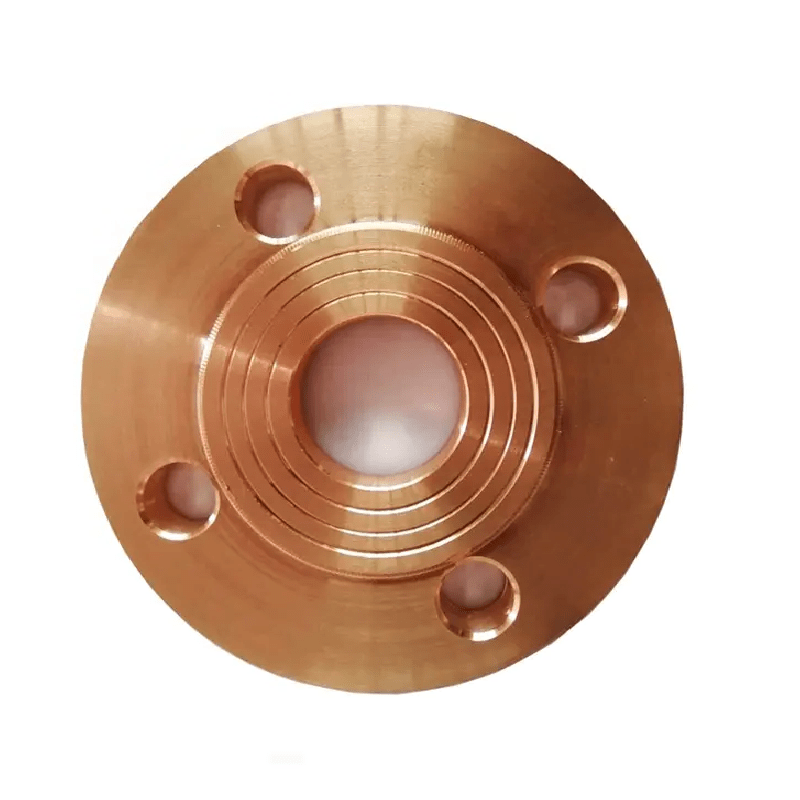Introduction to Copper Alloy Flange Sleeves
Copper alloy flange sleeves are specialized components widely utilized in various industries due to their exceptional properties, including strength, corrosion resistance, and excellent thermal and electrical conductivity. These sleeves serve as critical elements in mechanical and structural applications, particularly in contexts where reliable joint integrity and performance are paramount.

Understanding Copper Alloys
Copper alloys, primarily made from copper combined with other metals such as tin, aluminum, nickel, or zinc, exhibit enhanced properties compared to pure copper. These enhancements can include improved mechanical strength, better resistance to wear, and enhanced corrosion resistance, making them ideal for demanding environments. The most common copper alloys used for flange sleeves are brass (copper-zinc alloy), bronze (copper-tin alloy), and aluminum bronze (copper-aluminum alloy).
The Role of Flange Sleeves
Flange sleeves are cylindrical components designed to fit over a pipe or shaft and are often used in conjunction with flanged fittings. They provide a secure and stable joint, accommodating thermal expansion, vibrations, and other mechanical stresses. By using copper alloy materials, these sleeves gain additional benefits that enhance the performance of the overall assembly.
- 耐食性: Copper alloys, particularly aluminum bronze, are renowned for their resistance to corrosion in marine and industrial environments. This characteristic significantly extends the lifespan of the sleeve and the connected components.
- 機械的強度: Copper alloy flange sleeves maintain robust mechanical properties under varying temperatures and loads. This strength is essential for applications in high-pressure systems, such as oil and gas pipelines, where reliability is critical.
- 熱伝導率と電気伝導率: Copper alloys provide excellent thermal and electrical conductivity, making them suitable for applications in electrical systems and heat exchangers.
- 加工のしやすさ: Many copper alloys are easier to machine than other materials, allowing for precise fabrication and customization to meet specific design requirements.
Applications of Copper Alloy Flange Sleeves
Copper alloy flange sleeves are utilized across a broad range of industries, including:
- オイルとガス: In the oil and gas sector, flange sleeves are crucial for maintaining the integrity of piping systems, especially in offshore applications where resistance to seawater corrosion is vital.
- Marine Engineering: These sleeves are commonly used in shipbuilding and marine applications, where their corrosion resistance and strength are indispensable for components exposed to harsh seawater environments.
- 発電: In power plants, particularly those utilizing heat exchangers and cooling systems, copper alloy flange sleeves contribute to efficient thermal management and durability.
- HVAC Systems: In heating, ventilation, and air conditioning systems, flange sleeves help ensure reliable connections between ducting and piping, maintaining system efficiency and integrity.
Manufacturing Considerations
The manufacturing process of copper alloy flange sleeves typically involves casting, forging, or machining. The choice of method depends on the desired properties, dimensions, and production volume:
- 鋳造: Often used for complex shapes, casting allows for efficient mass production of sleeves with intricate designs.
- 鍛造: This method enhances the mechanical properties of the alloy through deformation, making it suitable for high-strength applications.
- 機械加工: Precision machining enables the production of custom sleeves to exact specifications, often required in specialized applications.
Maintenance and Lifespan
Copper alloy flange sleeves generally require minimal maintenance due to their corrosion-resistant properties. Regular inspections should be conducted to check for wear and any signs of corrosion, especially in environments where the sleeves are exposed to chemicals or extreme temperatures. With proper care, these sleeves can provide reliable service for many years, ensuring the long-term performance of connected systems.
結論
Copper alloy flange sleeves are indispensable components in a myriad of industrial applications. Their superior mechanical and corrosion-resistant properties, combined with excellent thermal and electrical conductivity, make them a preferred choice in environments where performance and reliability are critical. As industries continue to evolve, the demand for high-quality copper alloy components, including flange sleeves, will remain strong, driving innovation and development in material science and engineering practices. Through ongoing advancements, the role of copper alloy flange sleeves will expand, further cementing their importance in modern manufacturing and engineering solutions.
